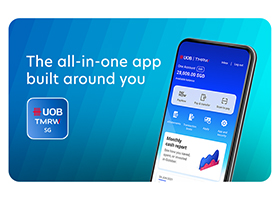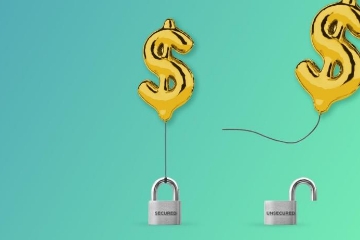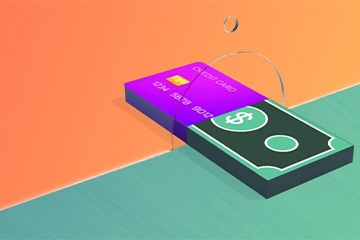You are now reading:
Can debt be good or bad? Learn the difference

Inspire the globetrotter in you with the first one-stop travel portal in Southeast Asia designed by a bank that inspires, helps you plan, and lets you book in one place.
Find out more
Get up to 6% p.a. interest in just two steps. Apply now and receive a pair of JBL Live Beam 3 and cash rewards! T&Cs apply. Insured up to S$100k by SDIC.
Find out more
Get instant cash at 0% interest and low processing fees. Enjoy S$100 cash rebate* on your approved loan amount!
Find out more
Invest in funds powered by Private Bank CIO – United CIO Income Fund and United CIO Growth Fund.
Learn more
Get PRUCancer 360 from just S$3.70 per week. Sign up now and enjoy 35% off your first-year premium. T&Cs apply.
Find out more
Meet UOB TMRW, the all-in-one banking app built around you and your needs.
Bank. Invest. Reward. Make TMRW yours.
you are in Personal Banking


You are now reading:
Can debt be good or bad? Learn the difference
Debt is one of those financial terms that has suffered a lacklustre reputation for a long time.
Nobody wants to be deep in debt. And, even if one is ever indebted, the general go-to advice would be to pay off these ‘financial burdens’ as soon as possible before loan interests rack up.
The reality is that incurring debt is a natural order of everyday life in the modern world.
Made a significant purchase for home renovations, or require urgent funds for emergencies? Taking a loan is often the best choice available to you, especially if the sum of money is not immediately available at that point of time. That would result in the borrower being in debt.
Yet, this debt can be categorised as ‘good’ or ‘bad’ depending on the purpose of the loan.
To be sure, having debt is ultimately useful when managing cash flows, especially when it frees up other currently available funds for other daily, crucial needs.
While these terms – good debts and bad debts – can be confusing in coming to terms with being indebted, they are useful in thinking ahead about your finances too.
Examples include education loans for further studies, which can increase the student’s chances of earning a regular salary, or to create money-making opportunities. Mortgages are also another common example of good debts as property prices may increase in value over time and have the potential to be worth more than the initial sum borrowed.
Business loans used for operational expenses or further business expansions are also under this category of debt as these provide windows to earn profit – if the business is managed well!
Personal Loan can be classified as good debt when used to help manage expenses, freeing up funds for appropriate investments that grow your wealth over time or improving your home to save on utilities in the future.
For example, UOB Personal Loan allows you to borrow a minimum sum of S$1,000, making it ideal for funding larger expenses. With a repayment period of up to 60 months and a fixed payment schedule, this tool enables you to finance your long-term goals in a predictable and manageable way.
Balance Transfer is another form of debt that can be preferable to credit card debts due to its favourable terms. Balance Transfer enables you to consolidate your outstanding credit card debt in another bank into your UOB Balance Transfer account at zero interest and a low one-time processing fee.
This helps to minimise your overall expenses as compared to typical credit card charges, and free up funds for other purposes. Moreover, with repayment options spanning up to 12 months, you have the flexibility to manage your repayments according to your circumstances.
It is when debts accumulate to a point where it starts getting difficult to make monthly repayments with your current income. One telling sign is when you start finding the need to consider between paying for necessities and sacrificing to pay your debt.
Have you been using your credit card regularly? Credit card debt is a common example of debt that can go out of hand, since it comes with high interest rates if not paid on time. Buy Now, Pay Later schemes fuels this habit – especially when used for consumables like clothing – as it “hides” the bill by delaying it, making you think you haven’t spent as much this month.
Car loans, particularly for personal use vehicles, are another source that quickly racks up the monthly repayments you need to make. Since cars are worth less than their original value (or the amount loaned) over time, car owners may not gain any returns even when selling said vehicle.
Such debts are unavoidable to most, because they are inherently helpful. Credit cards are one of the most common payment methods to fund important necessities such as food and bills. A car, to many others, serves as an essential expense that offers priceless convenience to everyday life.
You can even make these debts more manageable with UOB Balance Transfer. By consolidating your credit card debt into your UOB Balance Transfer account, you can benefit from paying lesser in interest and free up cash for other expenditures.
There are many reasons why you will need to borrow money, but these loans can work in your interest instead of being harmful.
Will the loan pay you back more than you put in? And, can you get more potential from your money in other situations? Ultimately, it depends on you to turn this ‘financial burden’ into long-term benefits.
We are providing you these financial literacy information (including any videos) (“Information”) for your general information only. We do not intend for you to use the Information as accounting, legal, regulatory, tax, financial or any other type of advice. Before making any financial decisions, please speak with your own professional advisors on the suitability of the product. We make no representation or warranty as to the accuracy and completeness of the Information. We are not liable if you suffer any losses arising from your reliance on the Information.

27 Nov 2024 • 11 MINS READ

27 Nov 2024 • 17 MINS READ

27 Nov 2024 • 10 MINS READ